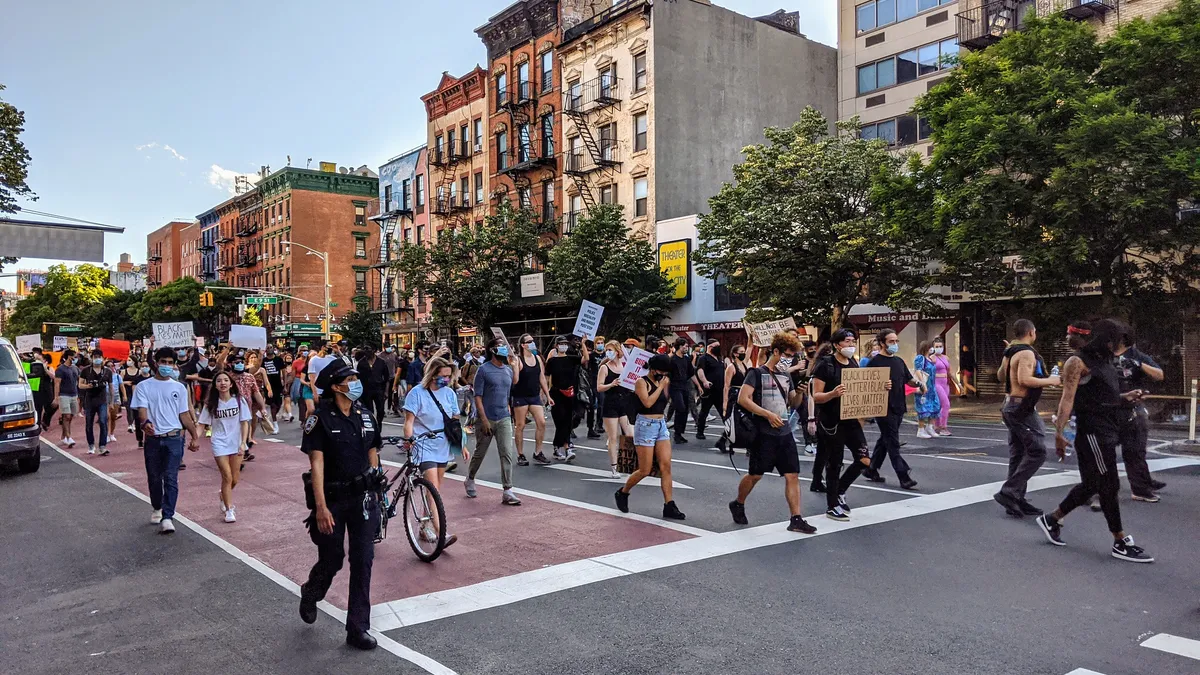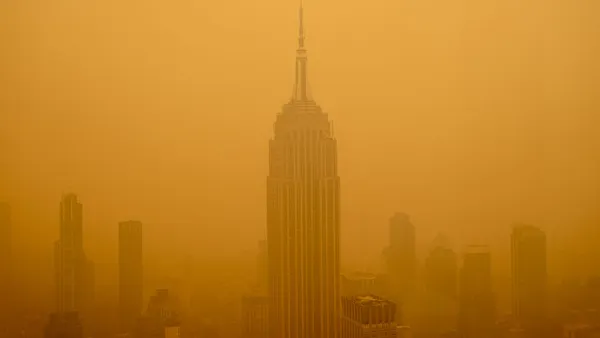Local leaders from Los Angeles to Chicago are calling on the federal government to provide financial relief in recovering from recent racial justice demonstrations — particularly as they struggle to stay afloat with budgets already strained by the coronavirus.
On a call Monday with Democratic presidential candidate Joe Biden, the mayors of Atlanta, St. Paul, MN, Chicago, and Los Angeles discussed the financial challenges their cities are facing following the weekend’s protests, compounded by the pandemic.
The requests for additional aid come as the Senate returned Monday and showed no signs of reviewing the House's $3 trillion relief package, while many local governments prepare to make significant spending cuts if they don't receive additional relief ahead of a July 1 deadline to adopt budgets.
St. Paul Mayor Melvin Carter said his city's financial situation is "catastrophic ... particularly right now when the world knows we’ve had a significant number of businesses and commercial property destroyed in the last week in light of the tragic killing of Mr. George Floyd."
The city of 315,000, which has not received direct aid from the federal government for COVID-19, has spent over $7 million for emergency assistance to residents and small businesses amid the pandemic. Part of that money has gone to fine and fee forgiveness, Carter said, including discounted business licenses and waived fees for individuals who get their cars impounded.
Carter anticipates up to 10% revenue reductions across the board. It is unclear how much more the city will need to dedicate to maintenance and recovery post-demonstrations.
Meanwhile, Atlanta Mayor Keisha Lance Bottoms emphasized the urgent need for mental health services following the demonstrations. She said the city does not have "the luxury" of setting aside money in an operational budget for trauma treatment due to COVID-19.
"When you look at the physical landscape and the damage that is being suffered in our communities, there's going to be an immediate need," Bottoms said. "But there's also this very real trauma that our communities are experiencing."
The State of Georgia was already anticipating major budget cuts to its mental health services before the pandemic. In January, the Department of Behavioral Health and Developmental Disabilities said it was bracing for up to $80 million in cuts through June 2021, which would impact over 200,000 people served by the agency last year.
And even though there’s a growing, urgent need for mental health support in cities — particularly for Black communities whose mental health is disproportionately affected by police brutality — the pandemic’s financial strain will likely limit those services.
"We have to be able to provide psychological resources to our communities, in addition to money to be able to rebuild these businesses and restore our communities," Bottoms said. "We absolutely cannot do it alone."
A mid-April survey by the U.S. Conference of Mayors and the National League of Cities found 96% of cities are experiencing budget shortfalls due to the coronavirus and unanticipated revenue losses from sources like utility and permitting fees. Eighty-eight percent of those surveyed also said the pandemic would lead to "painful reductions in revenue this year."
A bipartisan group of economists have requested that Congress provide $1 trillion in additional aid to states and cities, the Associated Press reports. About 3 million local and state government workers could become unemployed within the next year otherwise, on top of the already 1 million employees who have been laid off so far.












